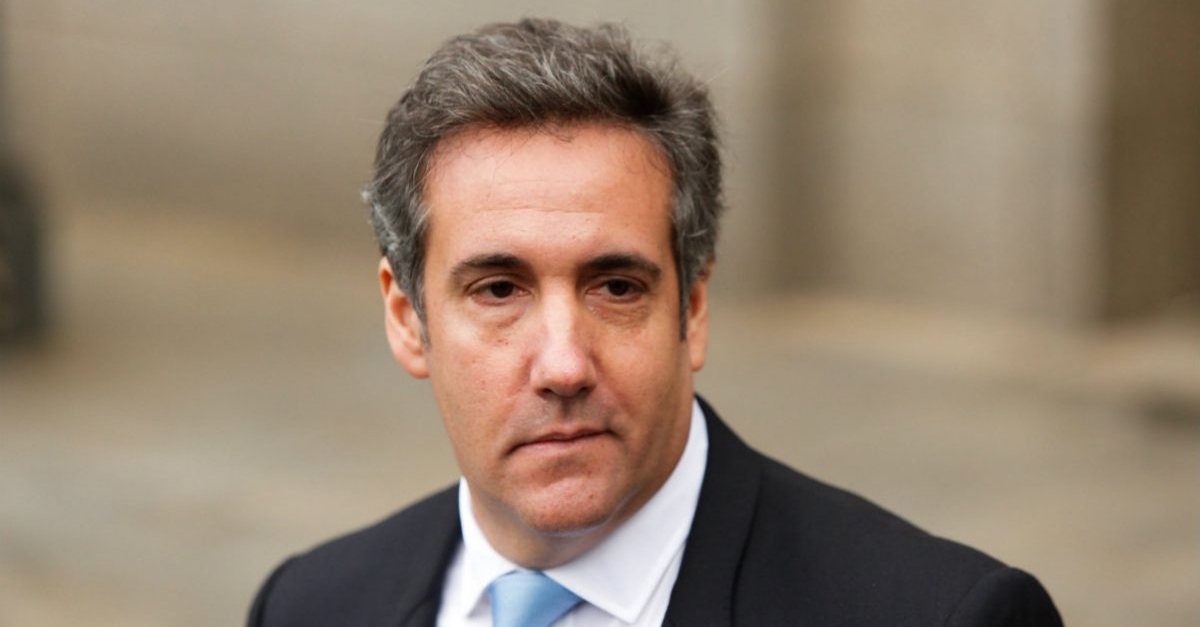
Michael Cohen
Michael Cohen’s attorney asked to discharge his client from supervised release, arguing that the former Donald Trump fixer “exceeded all of his court-ordered responsibilities.”
“Obviously, given the profile of Mr. Cohen’s prosecution, it is widely understood that Mr. Cohen endeavored to provide meaningful assistance to the government, at least as far as this term is colloquially understood,” Cohen’s attorney David Schwartz wrote in a three-page letter on Wednesday. “There is no question that Mr. Cohen and his family have paid the price for his transgressions. No doubt, it will also not be lost on this court that he has taken full responsibility for his actions.”
In a footnote, Cohen rattled off his prolific assistance to state, federal and congressional investigations. Cohen said he met with Manhattan District Attorney’s office a total of 12 times. Cohen had been incarcerated in Otisville during three of those visits from former Manhattan District Attorney Cyrus Vance (D).
“Mr. Cohen had no obligation to meet with the Manhattan District Attorney’s Office, and he received no benefit from doing so,” the footnote states.
In an interview, Cohen harshly criticized Vance’s successor Alvin Bragg (D) following reports that Bragg had declined to prosecute Trump, sparking the resignation of two of the office’s top prosecutors. Bragg officially insists that the investigation is continuing.
Cohen also said that he met with New York Attorney General Letitia James (D) three times, meetings that he said occurred both before and after his sentence. He said that he provided her with “several important documents.”
Both the district attorney’s investigation and the attorney general’s criminal one arose from Cohen’s sworn congressional testimony that Trump inflated or deflated his assets to obtain tax benefits. In an order compelling Trump’s deposition, Manhattan Supreme Court Justice Arthur Engoron found that James had a duty to investigate after Cohen told Congress that the former president had been “cooking the books.”
In addition, Cohen said he met with the U.S. Attorney’s official for the Southern District of New York seven times and with special counsel Robert Mueller’s office 10 times. Mueller’s representatives were also present during the meetings with SDNY prosecutors, Cohen says.
Though federal prosecutors in New York criticized Cohen’s “selective” cooperation, Mueller’s office praised Cohen’s assistance. The Manhattan federal prosecutors made that jibe during Cohen’s sentencing hearing in 2019, before U.S. District Judge William Pauley III dealt him a three-year prison term plus three years of supervised release for what the judge called a “veritable smorgasbord of fraudulent conduct.” Pauley died a year ago of cancer, and U.S. District Judge Jesse Furman is now presiding over Cohen’s docket.
Cohen was convicted of campaign finance crimes in relation to hush-money payments to two women to silence their alleged affairs with Trump. He also admitted to lying to Congress about the timeline of Trump’s failed plans to construct a tower in Moscow, which the former president considered the deal deep into 2016 campaign. During his sentencing, Cohen blamed Trump for the loss of his “moral compass,” and he has since rebranded himself as the former president’s sharp critic on his podcast Mea Culpa.
“Mr. Cohen has exceeded his court-imposed all of responsibilities, is a loving husband and father, presents no risk of recurrence, and generally does not require the social services support to appropriately reintegrate into society,” the letter states. “In fact, continuing supervision is his only remaining hindrance in terms of being able to re-assimilate into the community.”
Ending Cohen’s stint of supervised release would also sent a message to other would-be cooperators in high-profile investigations, his lawyer argues.
“Given the volume and quality of evidence that Mr. Cohen has provided to authorities, at great personal expense, we believe that an early release would encourage similarly situated figures to take an active role in cooperating in high profile investigations that are rife with consequence,” the letter states.
Read the letter below:
(Photo by Eduardo Munoz Alvarez at AFP via Getty Images)